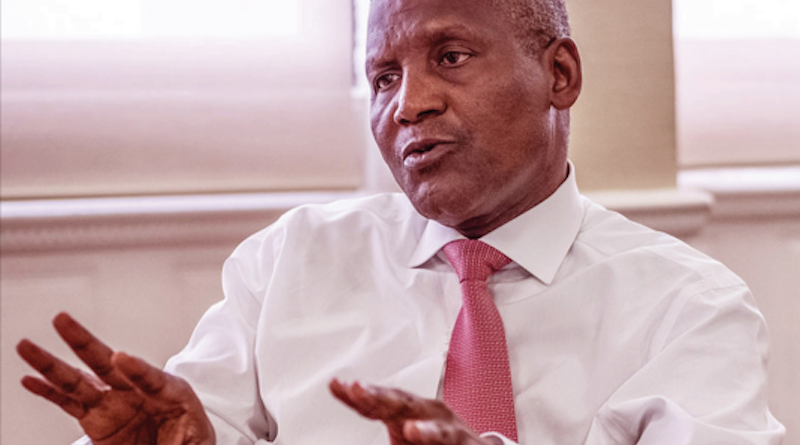Dangote Refinery Unveils Petrol, Claims “Our Quality Matches That of America”
Tuesday marked the first release of Premium Motor Spirit (PMS), or petrol, from Dangote Refinery’s 650,000 barrels per day facility, following a year-long launch in May 2023.
Aliko Dangote, a billionaire businessman and owner of a refinery in Lagos, Nigeria, announced at a news conference that “it’s a celebration day” for the people of Nigeria.
“You will now have access to high-quality petrol, and your vehicle engines will last longer,” he promised the populace. You won’t have to deal with the same engine problems that the rest of us have been facing. Absolutely not going to happen.
“The quality here will match that of anywhere in the world, including the United States and America, and we will ensure that nobody will beat us in terms of quality,” he added.
The proprietor of the refinery has promised that the product will be available for purchase after his business completes the necessary paperwork with the Nigerian National Petroleum Company Limited (NNPCL).
Our product will be released to the market if we reach an agreement with the NNPCL.
Restoring industry and manufacturing is something we will assist with. The naira will be stabilised, inflation and the cost of living will be reduced, and we will start saving and earning foreign cash through import substitution, he said.
Dangote, the most successful businessman in Africa, began producing 350,000 barrels per day last December at his $20 billion plant in Lagos.
In spite of setbacks caused by legal disputes, the refinery plans to operate at full capacity by year’s end, producing 650,000 barrels of oil per day.
The refinery has started providing the country’s marketers with petrol, diesel and jet fuel.
The NNPCL acknowledged that it has “significant debt to petrol suppliers,” which puts the sustainability of the fuel supply at risk, and the Dangote Refinery’s petrol rollout followed suit.
Reportedly, Nigeria’s perennial petrol shortage—which has persisted since the beginning of 2024—has been exacerbated by the NNPCL’s $6 billion debt to petrol suppliers.
The NNPCL has, on multiple occasions, cited logistical difficulties and floods as reasons for the critical commodity’s supply problems.
“This financial strain has placed considerable pressure on the company and poses a threat to the sustainability of fuel supply,” stated Olufemi Soneye, a spokesperson for NNPCL, in a recent statement.
With all of its state-owned refineries inoperable, the most populous nation in Africa, Nigeria, is grappling with energy issues. The state-run NNPC is the primary importer of refined petroleum products, which the country relies on substantially.
In this nation, petrol queue wait times are typical. The inhabitants who use petrol to power their automobiles and produce electricity have it much worse: since subsidies were removed in May 2023, the price of petrol has tripled, going from approximately 200/litre to nearly 800/litre. This is all because of the electrical supply crisis that has persisted for decades.
The value of the naira plummeted from $1/₦700 to over $1/₦1600 at the parallel market as the government unified FX windows at the same time. Upon learning that Nigerians were fighting inflation, the cost of food and other necessities skyrocketed.




